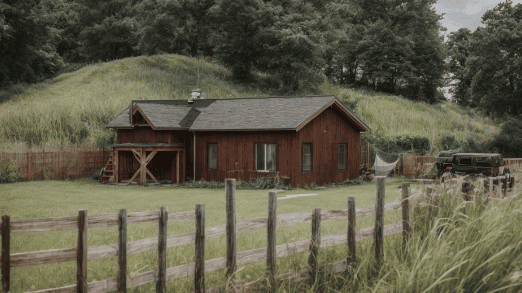
Are you considering installing a fence around your house? Whether it's for security, privacy, or enhancing the aesthetics of your property, a well-chosen and properly installed fence can offer a range of benefits. In this comprehensive guide, we'll delve into the different types of fences available, the factors that affect the cost of installation, and how you can save money while ensuring quality.
From wood and vinyl to aluminum and wrought iron, we'll explore the various options to help you make an informed decision. We'll provide insights into the average costs associated with different types of fences and discuss additional expenses you should consider. By the end of this article, you'll have a clear understanding of what to expect when installing a fence around your house and how to make the most cost-effective choices.
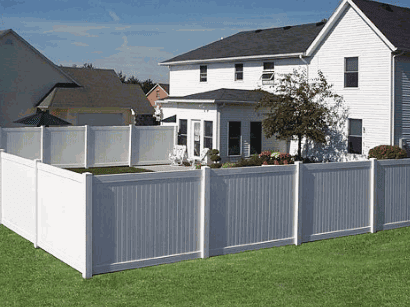
What Is A Fence?
Table of Contents
A fence is a structure used to enclose an area, typically installed around a house or property to provide security and privacy. It serves as a physical boundary, delineating the limits of a property while also preventing unauthorized entry.
Beyond security, fences contribute to the aesthetic appeal of a property, adding a sense of charm and character. They can help create a private and tranquil environment, shielding the property from external view and creating a sense of seclusion. With various materials and designs available, fences can be tailored to suit different preferences, seamlessly blending with the overall style of the property.
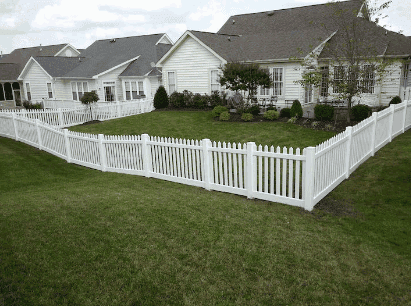
What Are The Benefits Of Installing A Fence Around A House?
Installing a fence around a house offers a multitude of benefits, including enhanced security, privacy, and aesthetic appeal, while also delineating property boundaries and serving as a valuable investment for homeowners.
Explore: How To Make Homemade Fence
Security And Privacy
One of the key benefits of installing a fence around a house is the enhanced security and privacy it provides, making it a valuable investment for homeowners.
The presence of a well-constructed fence acts as a physical barrier, deterring potential intruders and safeguarding the property from unauthorized access. It provides a secluded and tranquil outdoor living space for the residents, shielding them from external disturbances.
With various options such as high-quality materials, height customization, and additional features like gated entry systems and security cameras, fences offer a comprehensive solution for ensuring privacy and protection for residential properties.
Safety For Children And Pets
Installing a fence around a house ensures the safety of children and pets by establishing clear property boundaries and minimizing the risk of wandering or potential hazards.
It provides a secure environment for children and pets to play and roam freely within the confines of the property. Fences act as a physical barrier, preventing accidental encounters with street traffic, wild animals, or other potential dangers. They offer a sense of privacy, creating a secluded space where both children and pets can enjoy outdoor activities without constant supervision.
Fences serve as a visual cue for property boundaries, deterring trespassing and promoting a sense of security within the defined area.
Aesthetics And Property Value
A well-designed fence not only enhances the aesthetics and curb appeal of a property but also contributes to its overall value, making it a worthwhile investment for homeowners.
It serves as a defining feature that adds character to the landscape, creating a sense of privacy and security while elevating the outdoor ambiance. Residential fences can delineate property lines, providing a clear and visually pleasing boundary for the yard.
Their maintenance and upkeep also entail minimal costs compared to other property enhancements, making them a cost-effective means to elevate a home's exterior charm and value.
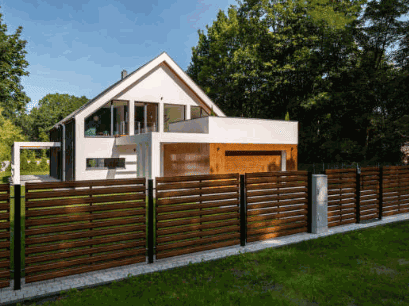
What Are The Different Types Of Fences?
Fences come in various types, including:
- Wood, which exudes a classic charm and is ideal for adding privacy and security to residential properties.
- Vinyl, is low-maintenance and highly durable, making it perfect for busy homeowners.
- Aluminum, is stylish, corrosion-resistant, and suitable for enhancing the curb appeal of modern properties.
- Chain link, which is cost-effective and provides a practical solution for containing pets and securing commercial premises.
Wood Fences
Wood fences are a popular choice for residential properties, offering privacy, aesthetic appeal, and customization options to define property boundaries and enhance outdoor spaces.
They allow homeowners to create a secluded and comfortable outdoor environment, serving as a natural barrier to shield the property from outside views. Wood fences also add a timeless, rustic charm to the landscape, blending seamlessly with various architectural styles. Their versatility enables customization in terms of height, design, and finish, catering to individual preferences and complementing the overall aesthetics of the property.
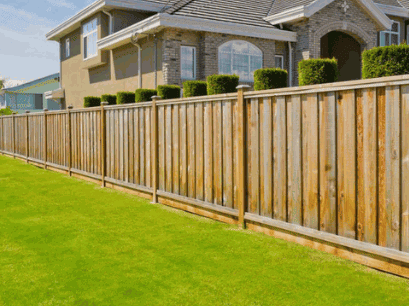
Vinyl Fences
Vinyl fences are known for their low maintenance requirements, and durability, and often come with warranty coverage, making them a popular choice for homeowners seeking long-term fencing solutions.
With their resistance to rotting, warping, and insect damage, vinyl fences are a reliable option for those looking for a fence material that will stand the test of time. The low maintenance aspect of vinyl fences makes them particularly appealing, as they only require occasional cleaning with soap and water. Beyond this, many vinyl fence products also come with impressive warranties, giving homeowners peace of mind regarding their investment in a durable and long-lasting fencing solution.
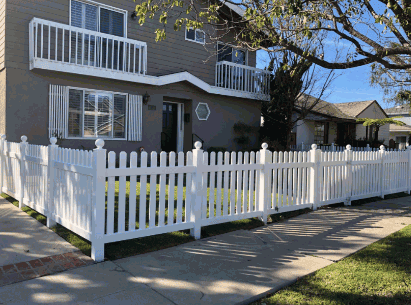
Aluminum Fences
Aluminum fences are valued for their aesthetic appeal, property delineation, and security features, making them a versatile and practical choice for residential properties.
Their sleek and modern designs add a touch of elegance to any property, enhancing its curb appeal and overall value. In addition, their durable construction and low maintenance requirements make them a reliable option for securing and defining boundaries. The sturdy nature of aluminum fences also acts as a deterrent to potential intruders, providing peace of mind for homeowners. Their decorative options further allow for customization to match the architectural style of the property, blending seamlessly with the overall landscape.
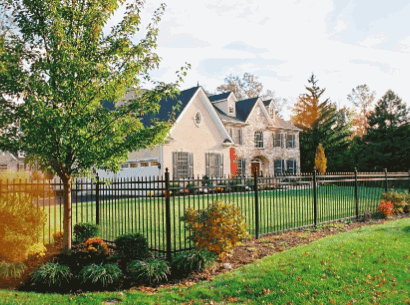
Chain Link Fences
Chain link fences offer affordability, security, and clear property demarcation, making them a popular choice for homeowners seeking practical and cost-effective fencing solutions.
Their cost-effectiveness is evident not only in the initial installation but also in their minimal maintenance requirements. The transparency of chain link fences allows for unobstructed visibility, enhancing security by providing clear lines of sight.
The durable nature of these fences ensures long-lasting protection for properties, offering peace of mind to homeowners. With their versatility and customizable options, chain link fences are a valuable investment for both residential and commercial properties.
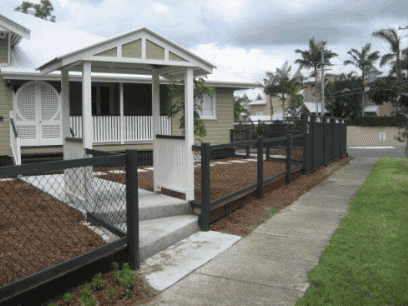
What Factors Affect The Cost Of Installing A Fence?
The cost of installing a fence is influenced by various factors, such as the type of fence chosen, local regulations, property measurements, and the involvement of professional contractors or labor.
Local regulations play a critical role in determining the requirements for fence installation, including height restrictions, materials allowed, and property line setbacks. Property measurements are essential as they directly impact the amount of fencing materials needed. The involvement of professional contractors can affect costs due to labor, expertise, and the overall quality of the installation.
Choosing the right type of fence, whether it's wood, vinyl, chain-link, or metal, also plays a significant role in determining the total cost.
Type Of Fence Chosen
The type of fence chosen significantly influences the overall cost of installation, with factors such as material prices, labor requirements, and potential contractor fees impacting the pricing and estimates.
For example, a basic chain-link fence may involve lower material costs but could require more labor for installation due to its construction. On the other hand, a wooden fence might have higher material expenses but lower labor costs, depending on the type of wood used.
The choice of contractor can also influence the overall cost, as experienced professionals may charge higher fees for their expertise and quality of workmanship. It's important for homeowners to carefully consider these factors when planning their fence installation to ensure they stay within their budget.
Length And Height Of Fence
The length and height of the fence directly affect the overall cost and pricing, with larger dimensions requiring more materials, labor, and a potentially more complex installation process.
These factors play a critical role in determining the total expense involved in fencing projects. The longer the fence, the more materials, such as posts, panels, and fasteners, will be needed. Similarly, taller fences demand additional resources and labor due to increased vertical support requirements and the weight of the materials.
Larger dimensions often entail a lengthier installation process, which can add to the overall cost. Considering these aspects is essential for accurate budgeting and planning when undertaking a fencing project.
Terrain And Difficulty Of Installation
The terrain and difficulty of installation play a crucial role in determining the cost and pricing of a fence, as challenging landscapes or terrain require skilled labor and specialized equipment, impacting overall expenses.
Factors such as steep slopes, rocky terrain, or the presence of trees and vegetation can significantly increase the complexity of installation, leading to higher labor costs and the need for specialized machinery. Navigating around existing structures or underground utility lines may pose challenges, requiring careful planning and expertise. These considerations underscore the importance of engaging experienced professionals who can assess these factors and recommend suitable solutions to ensure a successful and cost-effective fence installation.
Additional Features And Customization
Incorporating additional features and customization into the fence design influences the overall cost and pricing, with varying options and feasibility impacting the budget and estimates for installation.
Factors such as the choice of materials, decorative elements, and specialized finishes can significantly affect the total expenses. For instance, opting for premium wood or metal materials, intricate latticework, or custom-designed gates can elevate the expenses. The complexity of the chosen design, such as multi-level configurations or customized patterns, can also contribute to the overall cost.
It's important to carefully consider these design options and their feasibility within the budget to ensure a balanced and satisfactory outcome.
How Much Does It Typically Cost To Install A Fence Around A House?
The typical cost of installing a fence around a house varies based on factors such as the selected fence type, dimensions, and additional features, necessitating detailed quotes and potential negotiations for accurate pricing.
Factors that influence the cost include the material of the fence, whether it's wood, vinyl, chain-link, or other options, as well as the height and length of the fence. Additional features such as decorative elements, gates, and the terrain of the property also impact the overall cost.
It's crucial for homeowners to seek detailed quotes from multiple contractors and be open to negotiations to ensure they receive accurate pricing for their specific requirements.
Average Cost For Different Types Of Fences
The average cost of installing different types of fences, including wood, vinyl, aluminum, and chain link, varies based on material prices, labor requirements, and specific installation considerations for each type.
Wooden fences are generally more affordable to install, with an average cost ranging from ₤8 to ₤24 per linear foot, while vinyl fences tend to be more expensive, averaging ₤16 to ₤32 per linear foot. Aluminum fences fall in between, with costs typically averaging ₤16 to ₤24 per linear foot.
Chain link fences are often the most economical, typically ranging from ₤8 to ₤16 per linear foot. These costs also factor in labor expenses, site preparation, and installation intricacies depending on the specific type of fence chosen.
Additional Costs To Consider
In addition to the primary installation costs, homeowners need to consider additional expenses such as permits, insurance, and potential warranty coverage for the installed fence, addressing regulatory and protection-related requirements.
Permits are often required for fence installations, and their costs can vary depending on the location and the type of fence being installed. It's essential to check with local authorities to ensure compliance with regulations. Homeowners should also factor in insurance considerations, as certain types of fences may impact coverage.
Exploring potential warranty options for the fence is important to protect the investment and address any unforeseen issues that may arise post-installation.
How Can I Save Money On Fence Installation?
Homeowners can explore various methods to save money on fence installation, including considering DIY options, obtaining multiple quotes, and leveraging the affordability of local market factors.
By taking on the DIY approach, homeowners can not only save on labor costs but also have the satisfaction of completing the project themselves. Obtaining quotes from several reputable contractors allows for price comparisons and the opportunity to negotiate for the best deal. Leveraging the affordability of the local market can also lead to cost savings, as some materials and labor may be more competitively priced in certain regions.